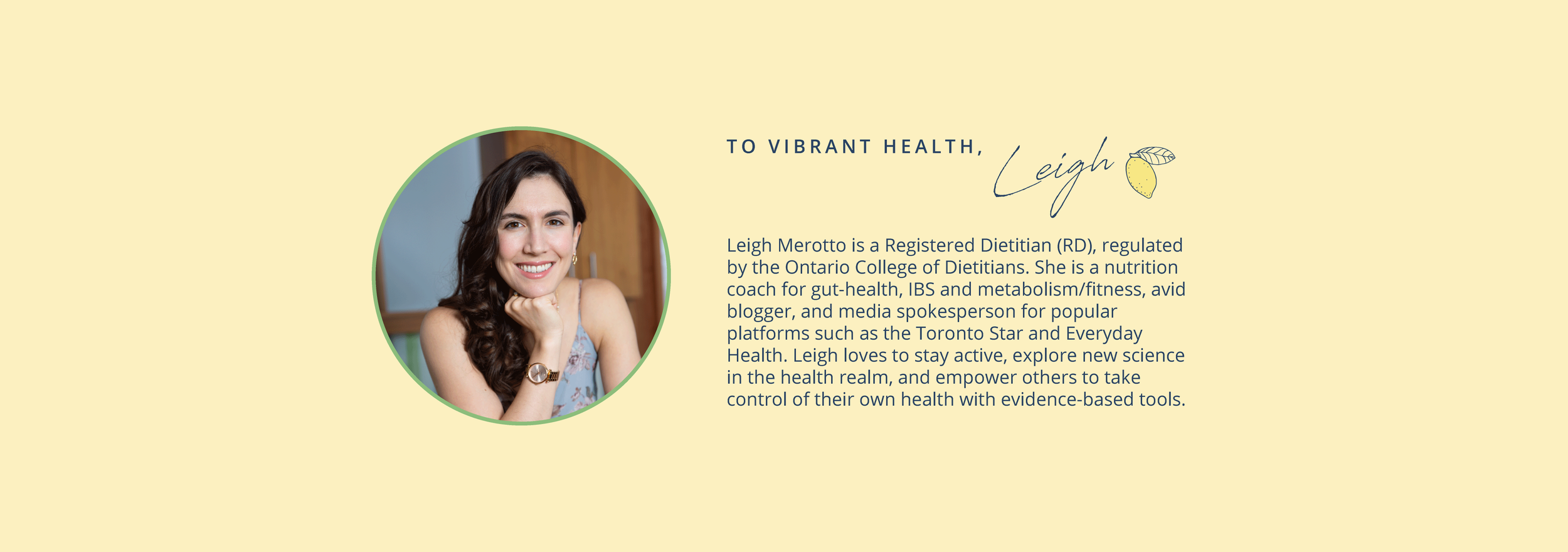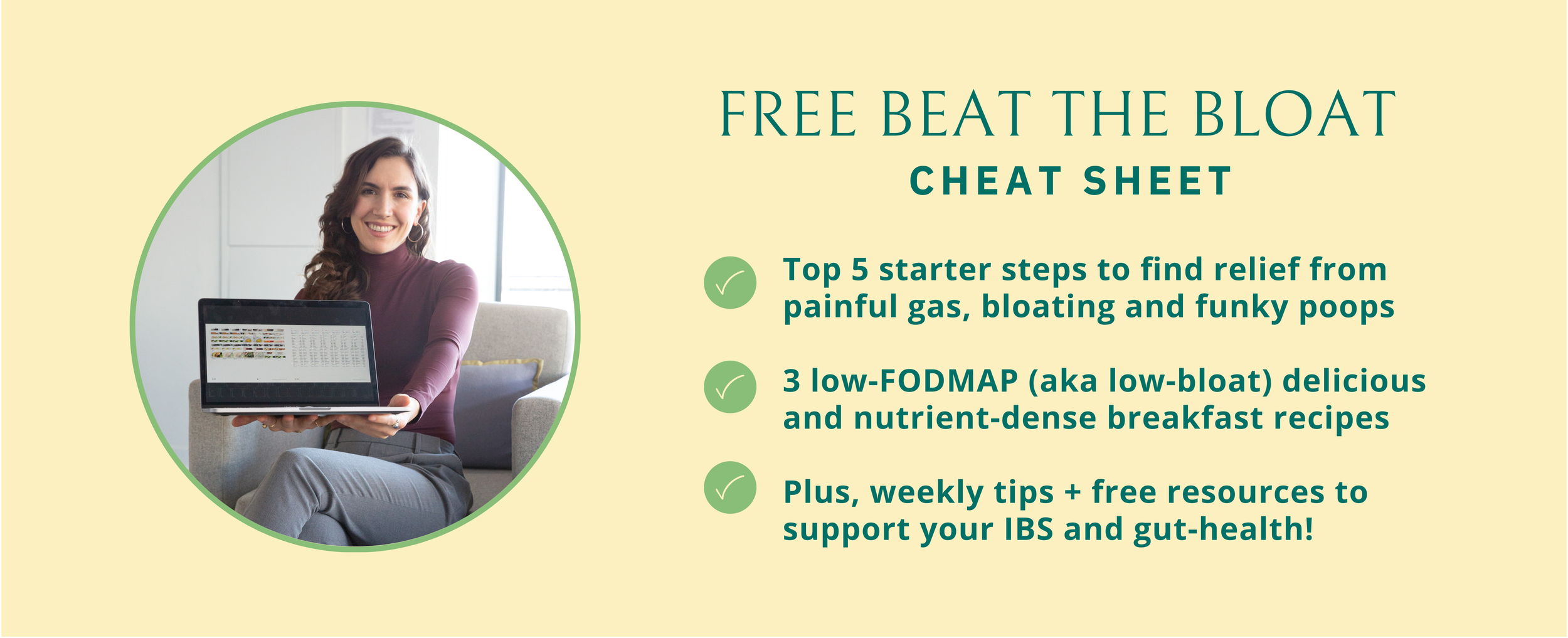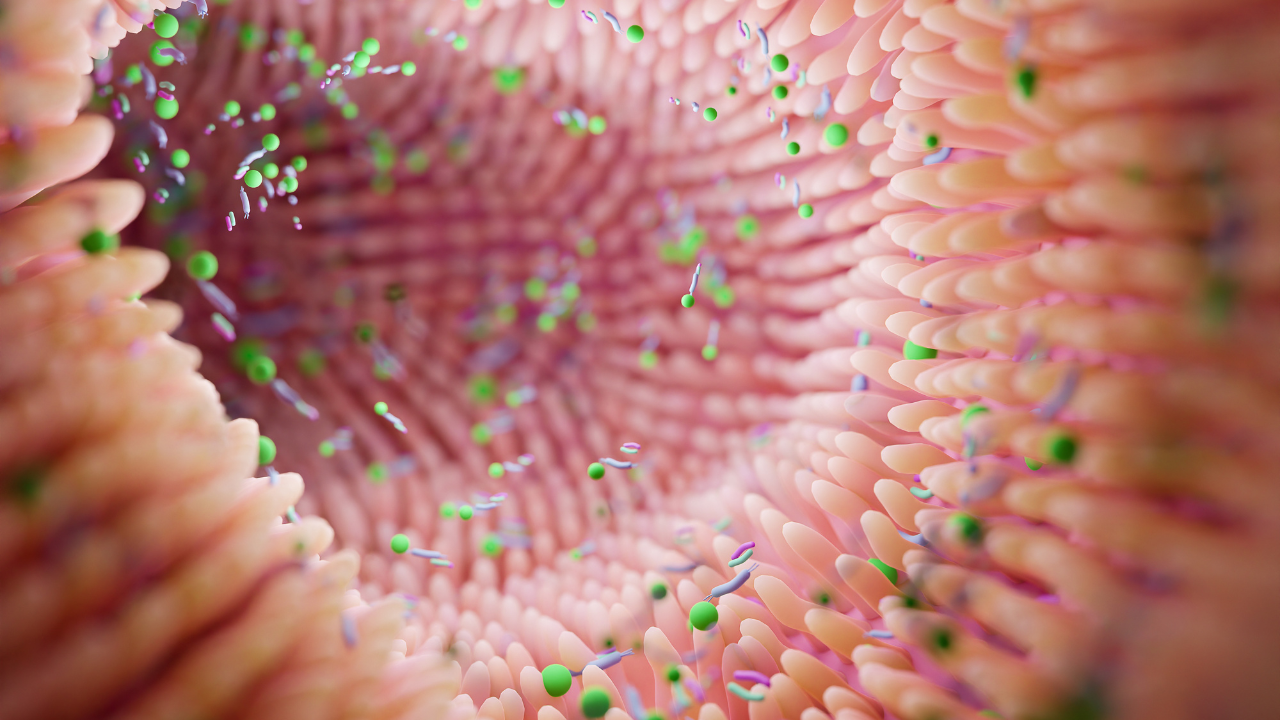How Drinking Alcohol Impacts Your Gut Health and Healing Progress
Wondering how alcohol plays a role in our digestive health and affects our gut? We will take a deep dive into this topic for today’s post!
Let’s get the basics straight.
What Is Alcohol?
Alcohol is the common name for the substance known as ethanol or ethyl alcohol (1). Pure ethanol is a clear and colorless liquid. While you probably wouldn’t drink a glass of pure ethanol (it wouldn’t be enjoyable, nor safe, and we DON’T recommend it) - we find this substance in varying levels in alcoholic beverages like wine, beer, and spirits (1).
Alcohol provides calories to the body (approx. 7 calories per gram). However, they fit the definition of ‘empty calories’. Alcohol does not provide our body with any nutritional function, unlike whole foods that offer essential vitamins and minerals. Due to its nature as a toxin, the body works extra hard to process it.
Alcohol is also considered a carcinogenic substance, meaning it increases the risk of cancer.
To understand how alcohol affects the gut, we must also understand what the gut actually is.
What is the Gut?
Our gut (also called our gastrointestinal tract) is the pathway from our mouth, through our esophagus, stomach, small intestine, large intestine and anus. It is the first line of contact with anything that is ingested into the body, so it is at particular risk for damage by toxins like alcohol (2).
Alcohol in Our Society
While alcohol is very normalized in our society, and can be a large part of social gatherings, unfortunately, there are less benefits than there are consequences.
You’ve likely engaged in the experience of a glass of wine at a tasting event, or perhaps a beer at a concert. But given it’s normalcy, perhaps you haven’t given too much thought about how it might be affecting your digestive system and progress with managing digestive disorders like IBS, SIBO and IBD.
As a Registered Dietitian, I typically wouldn’t tell someone that any food or drink is completely ‘off limits’, with the exception if someone has an allergy or severe intolerance. However in the case of alcohol, striving to moderate intake to once in a while to offset any negative effects is important.
How is Alcohol Broken Down in Our Body?
Now that we understand what the gut is, let’s walk through the process of how alcohol is digested in the body.
Alcohol is eliminated in the body by a few different mechanisms. The enzymes involved in alcohol metabolism include (3):
Aldehyde dehydrogenase (ALDH)
Alcohol dehydrogenase (ADH)
Cytochrome P450 and;
Catalase
Variations in these genes amongst individuals have been shown to affect factors like alcohol dependence and level of tissue damage related to alcohol (3).
After alcohol is swallowed, it is absorbed primarily from the small intestine (small bowel) into the veins that collect blood from the stomach and bowels. It also enters the portal vein, which is a major vein that leads to the liver (3).
From there, alcohol is carried to the liver where it is exposed to enzymes and metabolized (aka broken down) (3).This involves ADH - metabolism of ethanol with ADH produces Acetaldehyde, a highly reactive and toxic byproduct that may contribute to tissue damage and potentially the addictive process (3).
This process known as the ‘oxidation process of alcohol’ leaves the liver cells in a state that is particularly vulnerable to damage from the by-products of ethanol metabolism - such as free radicals and acetaldehyde (3).
While our liver is a strong and robust organ, it does take a hit when we consume alcohol, and this can affect how well it processes other toxins and supports your immune system (which helps explain why a night of drinking can increase your risk of picking up a cold or flu).
Aside from the liver, alcohol is also metabolized in non-liver tissues that do not contain Alcohol Dehydrogenase (ADH), such as the brain - by the enzymes cytochrome P450 and catalase (3).
Curious about the gut and liver connection? You may want to also read: The Fascinating Connection Between Liver Disease, SIBO and Your Gut Health
What are the Effects of Alcohol on Our Gut?
So now that we’ve gone through the basic processes, let’s summarize this information a little more to understand how alcohol affects the gut.
In short, alcohol induces inflammation in the gut through the gut-liver-brain axis, which is primarily responsible for the leading effects including altered intestinal microbiota, intestinal function, immune function and integrity (aka strength) of the intestinal lining.
Let’s get into how alcohol impacts these areas and can increase inflammation in the body.
Impact on Intestinal Microbiome
The intestine houses more than 500 species of bacteria, known as our gut-microbiome (more on that topic in my blog here). Balance in the gut-microbiome is achieved when the good and pathogenic bacteria are in harmony.
However, dysbiosis occurs when this ratio is out of balance. Studies show alcohol can promote dysbiosis and bacterial overgrowth (4): this, in turn, leads to an increase in endotoxins produced by pathogenic bacteria. These endotoxins can activate the immune cells that promote inflammation.
Bacterial Overgrowth
Studies also show that alcohol increases intestinal bacteria. This overgrowth may be directly stimulated by alcohol however other theories suggest that alcohol consumption may affect motility and functioning of the gut indirectly (4). Patients with liver cirrhosis were found to have a connection between abnormal motility and bacterial overgrowth (4).
Hyperpermeability
Have you heard of ‘leaky gut’? Well, that’s the slang term for ‘intestinal permeability’ - aka how easily substances can pass through our intestinal wall (5). Studies have shown that intestinal barrier dysfunction (aka a highly permeable membrane of our intestinal tract) can be related to diseases such as dysbiosis and liver disease (5).
Increased permeability of the intestinal barrier allows bacteria and the toxins they create to leave the gut and infiltrate other organs through the bloodstream (6). This can lead to unexplained inflammation symptoms like skin disorders (eczema, acne), anxiety, swelling and more.
Many factors can influence our intestinal permeability such as changes in the gut microbiota modifications, and epithelial damage, which can result from poor diet as well as alcohol usage (5).
Alcohol can affect the strength of the lining of our gut by:
Causing cell death (7), which leads to changes in the intestinal tract that include mucosal ulcerations, erosions, and loss of epithelium (the cells that line the top layer of the intestine) primarily at the villi tips (villi are small finger like projections in our intestine that absorb nutrients) (8);
Acetaldehyde forms DNA adducts that cause direct cellular damage (9); and
Reactive oxygen species (ROS) released during alcohol metabolism cause direct cellular damage via oxidative stress (10).
Mood & Gut-Brain Connection
I mentioned Acetaldehyde a few times - which is a very strong toxin that is produced by alcohol oxidation by all methods. Acetaldehyde can bind proteins, such as enzymes.
Acetaldehyde forms adducts (a reaction in which two molecules bind together to form a larger product) with Dopamine - which is an important neuromodulator responsible for mood. This reaction forms salsolinol which may contribute to alcohol dependance and the “low” effects after a night of drinking.
There can be variation from person to person on how quickly they can break down acetaldehyde to acetate and NADH. For some people, they lack the proper enzymes and so acetaldehyde can build up in the body and cause much more serious effects after drinking. We all know someone who chooses not to drink because they find it entirely unenjoyable; this can explain why.
NUTRIENT DEFICIENCIES
As discussed earlier, alcohol can damage the villi on our intestinal cells. These villi are important for absorbing nutrients. So by damaging them, this could in turn affect our bodies ability to properly absorb nutrients that we need for health, as well as maintain the function of our digestive tract such as Vitamin A, C, D, E, K and Zinc (11).
In addition, alcohol may affect our choices to consume actual food (aka proteins, carbs and fats) which in turn can lead to nutrient deficiencies. As alluded to earlier, alcohol does provide calories, however it does not provide any nutrients. While wine and beer do contain some carbohydrates, they are fairly void in vitamins and minerals.
To put it in perspective, consuming a drink with dinner once in a while likely won’t have an impact. But if you’re regularly swapping out real meals for a night of binge-drinking, then this will have its toll on your body and nutritional status.
Strategies to Reduce Alcohol Consumption
Now that we’ve gone through the downsides of alcohol, you may be wondering how to get started on reducing your consumption.
While your body can recover from the effects of alcohol when consumed occasionally, consistent consumption of multiple drinks in one night or during the week can lead to significant wear and tear.
As a Dietitian, for my clients with IBS and poor gut-functioning, support mood, as well as those wanting to see body composition change and manage weight, I recommend limiting to maximum 1-2 drinks per week (and ideally less - like 1-2 drinks per month).
It sounds restrictive, but given that alcohol has such damaging effects on the body and digestive system, if someone wants to truly see healing progress, moderating alcohol intake is a very crucial area.
Here are some strategies to reduce your intake.
CONSIDER WHY YOU ARE DRINKING
Stress? Boredom? Social? Knowing what the trigger is can help you to identify it. Consider alternatives that will truly support your wellbeing and mental health. For example, if you’re constantly stressed after finishing your day at work, try going for a walk or calling a friend instead of reaching for a beer.
SEEK SUPPORT
If mental health is a concern, reach out to a therapist to help work through any underlying issues. In addition, to support your gut-health and ensure you are consuming alcohol in balance with a nutrient dense diet, reach out to a dietitian to help you develop a plan for your needs and set goals to help you to moderate your alcohol intake in a way that will be sustainable for you.
For more on how to moderate alcohol intake, check out my blog post on the topic.
Final Thoughts
Chronic consumption of alcohol can lead to a whole body effect which may be responsible for many concerns like liver issues, and the development of leaky gut and intestinal dysbiosis which can lead to a host of issues like food intolerances, skin issues, mood changes, and more.
If you’re trying to improve your digestive health, want to have a more balanced mood and improved stress tolerance, and you have inflammation associated issues (skin conditions like eczema, anxiety and more), regularly consuming alcohol can be one area that can significantly hinder your progress.
If you want guidance and accountability to improve your eating habits and reduce alcohol intake, I would love to work together. Apply for 1:1 coaching here.















